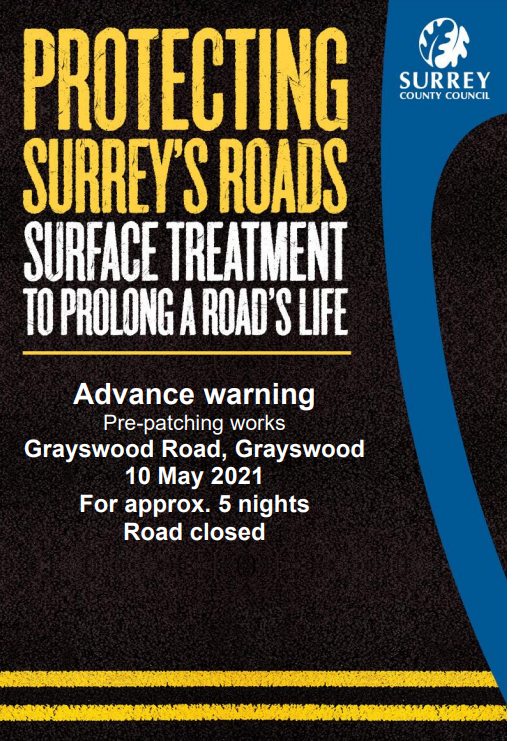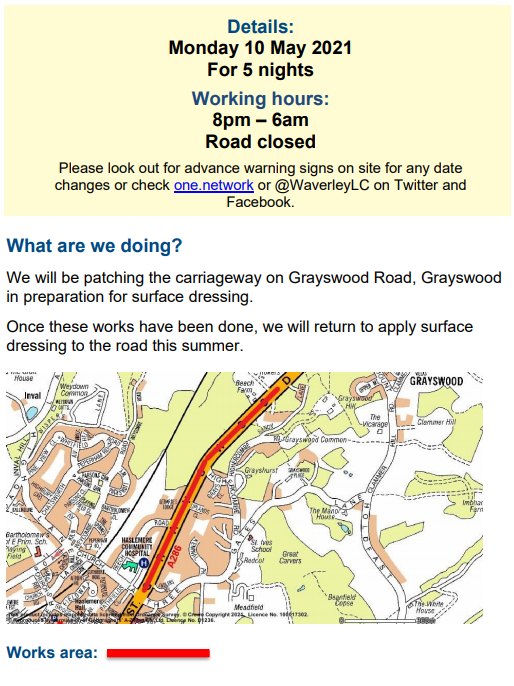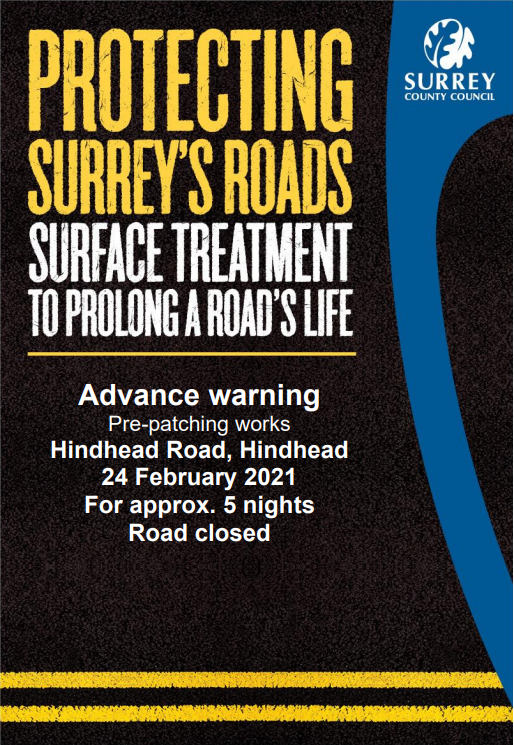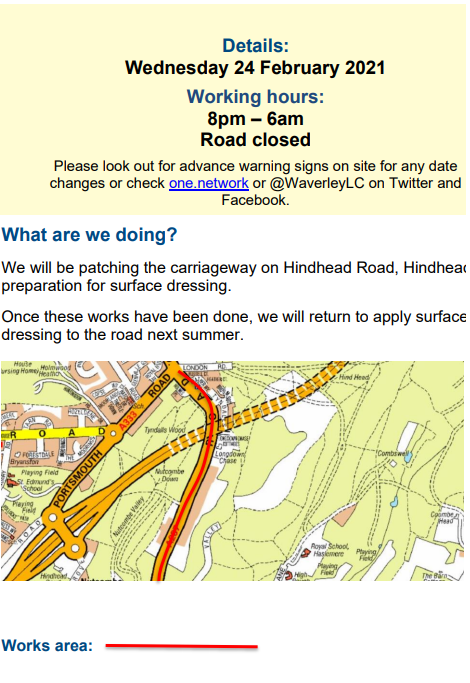Core Brief 05/01/21
SURREY DATA:
The
R rate for South East is 1.2-1.4 as of the latest update from gov.uk (23rd December).
It’s normally updated every Friday but they seemed to have paused over the
Christmas break.
Overall, the 7-day rate in
Surrey has gone up 23%
from 18-24 December (545.1) to 25-31 December (670.8). This will still be
affected by holiday reporting, so is likely to go further in the coming 7 days.
Please
note the different time period for the positivity data.
*Positivity
– weekly percentage of individuals that test positive.
|
|
7-Day Rate
27 Dec – 02 Jan
|
7-Day Cases
27 Dec – 02 Jan
|
7-Day Positivity*
24 Dec – 30 Dec
|
|
England
|
550.0
|
309,591
|
|
|
South East
|
632.7
|
58,080
|
18.9
|
|
Surrey
|
673.7
|
8,059
|
19.3
|
|
Spelthorne
|
854.3
|
853
|
23.8
|
|
Surrey Heath
|
751.4
|
671
|
20.7
|
|
Epsom and Ewell
|
740.4
|
597
|
20.2
|
|
Reigate and Banstead
|
730.8
|
1,087
|
17.9
|
|
Elmbridge
|
715.7
|
979
|
19.1
|
|
Woking
|
712.4
|
718
|
21.3
|
|
Tandridge
|
709.2
|
625
|
19.3
|
|
Waverley
|
623.0
|
787
|
17.5
|
|
Runnymede
|
607.2
|
543
|
18.6
|
|
Guildford
|
522.2
|
778
|
18.7
|
|
Mole Valley
|
482.5
|
421
|
15.6
|
NATIONAL
COVID HOSPITAL ADMISSIONS – PROVIDED BY CABINET OFFICE:
|
Date
|
National
Covid-19 hospital admissions
|
|
1st September 2020
|
496
|
|
1st November 2020
|
9,623
|
|
Christmas day 2020
|
17,701
|
|
4th January 2021
|
26,626
|
Key messages:
- The
Government has taken the decision to legislate new national lockdown
restrictions because of a number of indicators, including the infection rate in
the over 60s, the rate at which positive cases are rising and pressures on the
NHS.
- There
has been a stark rise in national Covid hospital admissions (see above) and now
is the time to take action to prevent our crucial frontline services being
stretched even further.
- Rates
are now very high across the board in Surrey. There has been an alarming
increase in rates across all age groups, this is particularly serious for the
over 60s who are known to be more vulnerable to the virus.
- We
are also able to share for the first time the positivity rates, which is the
percentage of tests that are positive in each district and borough. This has
increased rapidly in Surrey in recent days. Spelthorne currently has the
highest positivity in Surrey – almost one in four tests carried out there are
positive. Other districts and boroughs are not far behind. This is a strong
indicator that there is real cause for concern.
- While this lockdown
is not entirely unexpected news, it has a huge impact on all our lives and it
is not the start to 2021 that we had hoped for. However, it is clear from
public health data and the pressure across our National Health Service that
these measures are absolutely necessary in order to save lives.
- I want to reassure
everybody in Surrey that the County Council will continue to do everything we
possibly can to guide our residents and businesses through this latest stage in
our response to COVID-19.
- Together with our
partners of the Local Resilience Forum, we have worked tirelessly to protect
residents and equip our frontline services.
- We will step up
support to the most vulnerable, frontline services, and work with our education
providers over the coming days, and continue to communicate openly with
residents.
- If
people don’t follow the rules now, we are going to see rates rising even higher
and the dangerous knock-on effect of that in our hospitals, stretching the NHS
and frontline services even further and ultimately more deaths.
- Despite
Tier 4 restrictions in place over Christmas our rates were still going up. The
majority of people are doing the right thing and following the rules, but we
have to think about the places where people are still mixing with others and
make sure we are being extra vigilant.
- Make
sure you are following the correct guidelines
on support bubbles (you can only form one support bubble, with one other
household – further guidance below). If you are mixing with others outdoors,
only meet with one other person, by
yourself, if they are not in your support bubble or don’t live in your house.
Remember hands, face, space and continue to socially distance in shops and
supermarkets. Even if you are wearing face coverings it is important to keep
your distance from people not in your household or support bubble.
- There
is hope for the future – the vaccine gives us that clear hope that there is a
way out – but the vaccination programme will take time, so we have some
exceptionally tough months to get through first.
- I want to reassure
everybody in Surrey that the County Council will continue to do everything we
possibly can to guide our residents and businesses through this latest stage in
our response to COVID-19.
- We have been at the
forefront of the response here since the first UK transmitted case was reported
in Surrey in February last year.
What about the effect on Businesses?
- This has been an
incredibly difficult time for all businesses that will now have to close again.
It is hugely frustrating after all the work that has gone into adapting to
COVID guidance during the previous months.
- I am pleased that
support is available again from government but there is no getting away from
the fact that this will be very tough for businesses. Unfortunately there is a
clear public health need and we simply must take measures to stop the spread.
LOCKDOWN RULES – HOW DO THEY DIFFER TO TIER 4?
[Refer detailed questions to guidance on
the .gov.uk Covid web pages]
LEAVING HOME:
You must not
leave, or be outside of your home except where necessary. You may
leave the home to:
- shop for basic necessities, for you or a vulnerable person
- go to work, or provide voluntary or charitable services, if you
cannot reasonably do so from home
- exercise with your household (or support bubble) or one other
person, this should be limited to once per day, and you should not travel
outside your local area.
- meet your support
bubble or childcare
bubble where
necessary, but only if you are legally permitted to form one
- seek medical assistance or avoid injury, illness or risk of harm
(including domestic abuse)
- attend education or childcare – for those eligible
Colleges,
primary and secondary schools will remain open only for vulnerable children and
the children of critical
workers.
All other children will learn remotely until February half term. Early Years
settings remain open.
Higher
Education provision will remain online until mid-February for all except future
critical worker courses.
If
you do leave home for a permitted reason, you should always stay local in the
village, town, or part of the city where you live. You may leave your local
area for a legally permitted reason, such as for work.
If
you are clinically extremely vulnerable
you should only go out for medical appointments, exercise or if it is
essential. You should not attend work.
MEETING OTHERS:
- You cannot leave your home to meet socially with anyone you do not
live with or are not in a support
bubble with
(if you are legally permitted to form one).
- You may exercise on your own, with one other person, or with your
household or support bubble.
- You should not meet other people you do not live with, or have
formed a support bubble with, unless for a permitted reason.
Stay
2 m apart from anyone not in your household.
VACCINATION
MESSAGES – Surrey Heartlands:
When and
where is the Oxford vaccine roll-out starting locally?
As part of the national roll-out, we will start to receive small
quantities of supplies of the Oxford vaccine later this week; supplies will
ramp up over the coming weeks and we will gradually roll it out across our
sites.
Supplies will be small to start with and we will gradually roll it
out across our sites over the coming weeks – the whole vaccination programme is
dependent on the supplies of the vaccine.
The new vaccine will be easier to store and transport and will
enable us to ramp up roving services to care homes, the housebound and so on
If asked we
could add:
- We expect Epsom
Racecourse to go live as larger vaccination centre from next week
- Additional local
GP-led vaccination services are going live across the county over next couple
of weeks
How is the
rollout going?
Across
Surrey Heartlands we have been working hard over just three short weeks to
deliver the Pfizer vaccine, through our first hospital hub at Royal Surrey, in
GP-led community vaccination sites and we’ve just started a roving model to
start vaccinating in care homes
NHS staff
are doing an incredible job to deliver what it is the largest vaccination
programme in our history, at the same time as continuing to be there for
everyone who needs care.
This whole
programme has been set up really quickly, starting with the over 80s and care
home residents & staff as priorities; I would like to reassure any of your
listeners that if you are within these groups and haven’t heard directly from
us yet, we will get to you soon. Please
help us by not contacting us directly, we will contact you as soon as we can.
The
collaboration with local partners has also been incredible and has allowed us
to roll this out at pace.
Important to include if you can:
The large
increase in cases hospitals are seeing and the emergence of a new variant of
the virus also shows that we cannot let our guard down now and even those who
have received a vaccine still need to follow social distancing guidance.
The public
have an important part to play to help us do this:
- please don’t contact the NHS to seek a vaccine, we will contact you;
- when we do contact you, please attend your booked appointments;
- and really importantly, please continue to follow all the guidance to
control the virus and save lives.
This is the biggest vaccination programme the NHS has ever undertaken.
It is a huge challenge, and not everything will always go perfectly.
The NHS is well-used to delivering millions of vaccines a year and is
moving quickly to roll out this vaccine to those who need it, but it’s
important that we remember this will be a marathon, not a sprint.
On pressure on the
NHS, and potential of new lockdown measure:
As long as cases continue to rise there will be pressure on
the NHS.
Locally whilst our health system, including our hospitals,
is under considerable pressure we are holding our own – however the next few
weeks are expected to be particularly difficult as we await any direct impact
from the Christmas and New Year period on hospital admissions.
I cannot stress enough how important it is for people to
follow the guidance and stay at home wherever possible.
SURREY
HEARTLANDS – INCREASING CAPACITY OF NHS SERVICES
Due to the impact of Covid-19 on local NHS
services, we are doing all we can as system, to increase capacity. This
includes opening more beds and redeploying staff to support our Covid-19
response. As cases of Covid-19 continue to rise we have been working
collaboratively as a system to put measures in place that will enable us to
prioritise how we provide care to those who are most critically ill.
This is not a decision we have taken lightly
but we must focus our efforts on those who need the most urgent and life-saving
care. This means we have now postponed many routine and non-urgent elective
procedures and operations across our system so we can focus on urgent and
cancer care, including caring for those with Covid-19.
These new measures include:
· Opening up additional beds within
our acute and community hospitals to help create additional capacity for
people who need to be admitted. This includes plans to open additional beds at
the NHS Seacole Centre.
· Prioritising urgent and cancer care
over non-urgent care. This has meant postponing some routine planned
elective procedures and non-urgent operations to help create additional bed
capacity and free up staff who can then be deployed to support our Covid-19
response.
· Moving to virtual (telephone and
online) appointments for many outpatient services to reduce the number of
people travelling to hospitals and other sites to reduce transmission of the
virus.
· Working together as a system, across
health and social care, to discharge people from hospitals as soon as they are
well enough to leave, with the right support and the right package of care.
· Working with our independent sector
partners (such as private hospitals) to identify any additional bed
capacity and any clinical staff that could be deployed to other sites if
needed.
· Temporarily suspending home birth
services due to ongoing pressures on the ambulance service which means
SECAMB are unable to guarantee a timely ambulance response to those women
choosing to plan their birth at home or in a stand-alone midwifery unit should
they experience an emergency.
Importantly,
patients who have appointments should still attend; if we need to reschedule an appointment
patients will be contacted directly. Importantly, primary care services remain
open.
For those who need urgent care which can’t be
managed via a GP appointment, we would urge people to contact NHS 111 first,
either online via www.nhs.uk or by calling 111; please keep A&E for
emergencies only.
The measures we have put in place will allow
us to care for those who need the most urgent help over the next few weeks; we
will of course keep the situation under constant review so we can restore these
non-urgent services as soon as possible. In the meantime, NHS services are
available for those who really need help; spotting problems early is vital,
especially cancers, and GPs continue to refer patients who need urgent
treatment to hospitals as normal.
Further
guidance
SUPPORT
BUBBLE RULES – people must follow exact rules:
It
is important that people understand the rules for support bubbles.
Not
everybody can form a support bubble. You can form a support bubble with another
household of any size if:
- you
live by yourself – even if carers visit you to provide support
- you
are the only adult in your household who does not need continuous care as a
result of a disability
- your
household includes a child who is under the age of one or was under that age on
2 December 2020
- your
household includes a child with a disability who requires continuous care and
is under the age of 5, or was under that age on 2 December 2020
- you
are aged 16 or 17 living with others of the same age and without any adults
- you
are a single adult living with one or more children who are under the age of 18
or were under that age on 12 June 2020
You should not form a support
bubble with a household that is part of another support bubble.
If
you share custody of a child with someone you do not live with, the child can
move freely between both parents’ households. You do not need to form a support
bubble to do this.
You
can form a support bubble if you are eligible.
SCHOOLS
Colleges,
primary (reception onwards) and secondary schools will remain open for
vulnerable children and the children of critical workers. All other children
will learn remotely until February half term.
In
the circumstances, the Government does not think it is possible for all exams
in the summer to go ahead as planned. DfE will accordingly be working with
Ofqual to consult rapidly to put in place alternative arrangements that will
allow students to progress fairly.
- Mass secondary school testing will still go ahead for staff and
those pupils (critical worker parents or vulnerable) in school
- If one parent is a critical worker children will be eligible to
attend school
- Head teachers will have the flexibility to allow children who
struggle to access learning remotely to attend school









